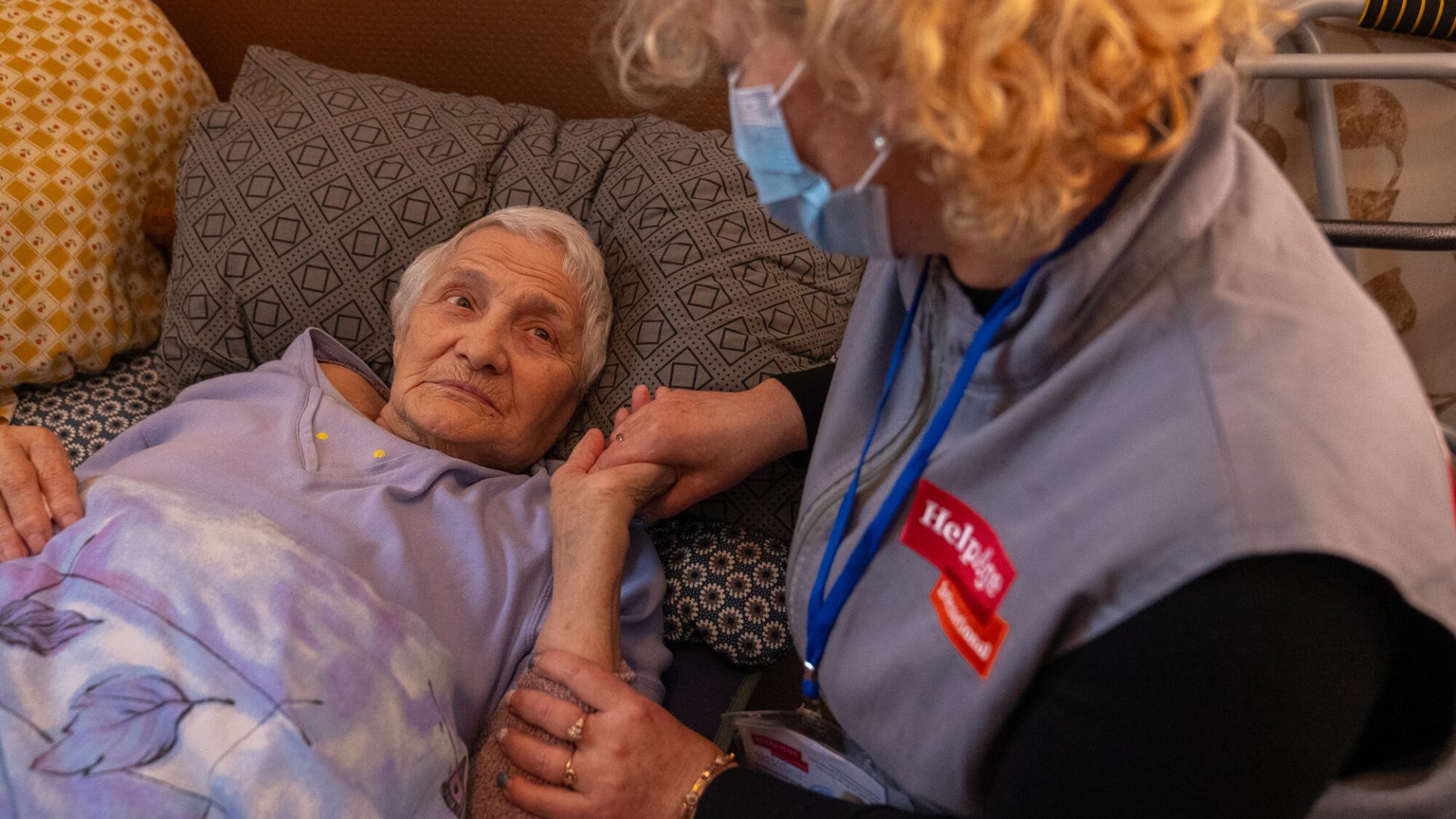Older Ukrainians living with serious illness face significant concerns and challenges within the political, environmental, and social context of the ongoing armed conflict, according to a new report published by HelpAge International, in partnership with HelpAge USA.
Humanitarian actors must include palliative care in their response plans and listen to the voices of older people and their caregivers to provide comprehensive home and community-based care that aligns with their preferences and needs.
The report highlights an innovative project funded by GlobalGiving which provides palliative care services in Ukraine. It underscores the profound challenges faced by older people due to the combined toll of disease and the ongoing war, and offers key recommendations to enhance their care and support.
“Our findings reveal the unimaginable burden faced by older people living with serious illnesses in the midst of war. We are deeply grateful for the generous support of GlobalGiving, which has allowed us to highlight these issues and work to ensure that older people’s needs and preferences are included in healthcare system planning during humanitarian crises,” said Cindy Cox-Roman, CEO and president of HelpAge USA. “The voices of older people must lead the way in developing policies and care models that uphold their dignity and well-being. Every older people facing serious illness in Ukraine has the right to live their remaining days in dignity and safety, free from fear and surrounded by people who care.”
The report, titled “’At Home, Even the Walls Help’: Exploring the Palliative Care Needs, Experiences, Preferences, and Hopes of Older People with Serious Illness in Ukraine,” is based on interviews and focus groups with older Ukrainians living with serious illness, informal caregivers, and health and social care workers in three oblasts: Lviv, Dnipro, and Kharkiv. The interviews and focus groups were conducted by HelpAge staff in March and April 2024 and examined how pain stemming from illness is entwined with the pain of living through a devastating war.

